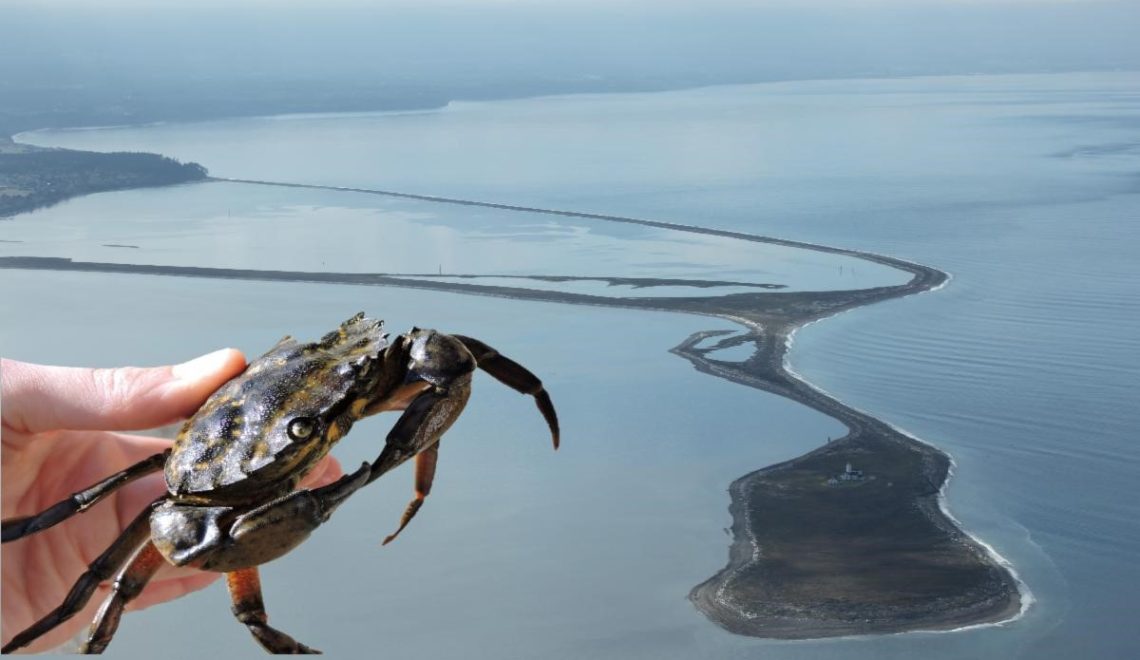
Who Let The Crabs Out?
European green crabs (Carcinus maenas) are small, aggressive, and voracious marine shore crabs. With strong potential to significantly alter any ecosystem they invade; they have earned the reputation as one of the world’s worst invasive species.
Green crabs’ native distribution is the northeast Atlantic and Baltic Sea. However, with the ability to tolerate a variety of habitats and thrive in wide ranges of temperature and salinity, they have managed to invade numerous coastal communities outside their range, including South Africa, Brazil, Australia, and both coasts of North America.
These skilled predators prey on many organisms including clams, oysters, mussels, and native shore crab species. Not only altering the biodiversity of the ecosystems, but threatening fisheries and aquaculture operations. There is evidence that green crabs also damage eelgrass beds by ripping through them as they forage. Green crabs can quickly multiply, and their burrowing techniques leave shorelines prone to erosion.
Ballast water, recreational boaters, and ocean currents have all been identified as potential pathways for aquatic introductions. Green crabs were first detected on the US West Coast in San Francisco Bay in 1989 and arrived on Washington’s outer coast (Gray’s Harbor and Willapa Bay) in 1998. In the last few years, European Green Crabs have made their way into the Puget Sound and have been discovered near Dungeness Spit.
Managing invasions requires keeping a sharp lookout and responding quickly by trapping and removal before small populations get too big to control.
On Tuesday, March 16th at 4pm Lorenz Sollmann, Deputy Project Leader, USFWS (US Fish and Wildlife Service) will be giving a presentation discussing what the Dungeness National Wildlife Refuge has learned so far about the invasive crab. He will explore the biology and history of the crabs themselves, big picture control efforts, and focus on Dungeness refuge removal efforts.
We hope you can join us for an informative presentation and learn what’s going on in your “backyard.”Click here to register!

